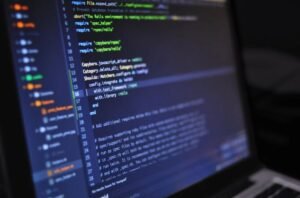AI Music Is Scary
The development of Artificial Intelligence (AI) has taken many industries by storm, and the music industry is no exception. While AI-generated music has its benefits, there are valid concerns and considerations that make it a somewhat unnerving prospect.
Key Takeaways:
- AI-generated music can be highly impressive, but it raises concerns of artistic authenticity.
- There are legal and copyright issues surrounding AI-created music.
- AI music lacks human emotions and the interpretative nuances of human performers.
**AI music, often composed using complex algorithms and machine learning techniques, has gained significant traction in recent years.** By analyzing vast amounts of musical data, AI systems can mimic various musical styles and create original compositions. This capability opens up exciting possibilities for the music industry, such as automatically generating background tracks for videos, aiding in the composition process, and providing tailored music recommendations. The potential for efficiency and innovation is undeniable.
However, when exploring AI music, it becomes evident that there are certain concerns that need to be addressed. **Firstly, questions of artistic authenticity arise.** Can AI-generated music truly be considered art? While the technical prowess is remarkable, the absence of human creativity and emotions may leave some feeling disconnected from the music. This debate surrounding the value and significance of AI music remains ongoing.
**Another crucial consideration revolves around legal and copyright issues.** As AI systems are capable of creating music that closely resembles certain artists or genres, there are potential copyright infractions. Determining the ownership and originality of AI-generated music can lead to complex legal disputes. It poses a challenge for both artists and the industry.
| Pros of AI Music | Cons of AI Music |
|---|---|
| Efficient composition process. | Lacks human emotions and personal touch. |
| Potential for innovation and new musical styles. | Raise concerns of artistic authenticity. |
| Enhances music recommendation systems. | Infringement of copyright and ownership issues. |
**One of the significant drawbacks of AI music is the lack of human emotions and interpretative nuances that make music performances special.** While AI can compose beautiful melodies or harmonies, it fails to capture the emotions that a human performer brings to the table. The subtle variations, expressiveness, and personal touch are missing, which may lead to emotionally sterile musical experiences.
The debate over AI music‘s role in the industry intertwines with the discussion about the future of creativity and human expression. **Humans have long utilized music as a form of storytelling, emotional connection, and cultural expression.** AI-generated music challenges our understanding of artistic creation and may raise profound questions about the role of technologies in shaping our cultural heritage.
| Advantages | Disadvantages |
|---|---|
| Enhanced efficiency in creative processes. | Questionable artistic authenticity. |
| Potential for innovative compositions. | Lack of emotional depth in performances. |
While the use of AI in music holds tremendous potential, it is essential to consider the implications and limitations of this technology. **AI music may augment human creativity, but it cannot replace the depth and emotional connections created through human expression.** As we navigate this technological landscape, it is crucial to strike a balance that preserves the essence of art while embracing the opportunities AI brings to the table.
Final Thoughts
The emergence of AI in the music industry has sparked both excitement and skepticism. Some hail it as a breakthrough, while others express concern about the loss of human touch and authenticity. As technology continues to evolve, so will our perceptions and definitions of art. AI music is undeniably impressive, but it is up to us to find the right balance between innovation and preserving human creativity.

Common Misconceptions
Misconception 1: AI music will replace human musicians
One common misconception people have is that AI music will completely replace human musicians in the future. While AI has made significant advancements in generating music, it is important to note that AI-generated music lacks the emotional connection and creativity that human musicians bring to their compositions.
- AI music lacks the emotional depth that comes from human experiences and interpretation.
- Human musicians capture the essence of their emotions through their performances.
- AI music is limited by the algorithms and data it is trained on, limiting its ability to create truly unique and original compositions.
Misconception 2: AI music is devoid of artistic value
Another misconception is that AI-generated music has no artistic value and is merely a result of algorithms and mathematical calculations. However, AI can be a tool for human musicians to enhance their creativity and explore new musical possibilities.
- AI music can inspire and influence human musicians, sparking new ideas and innovations.
- AI algorithms can analyze vast amounts of musical data, providing valuable insights for musicians in composition and arrangement.
- AI music can serve as a collaborative tool, allowing musicians to interact and improvise with an AI system in real-time.
Misconception 3: AI music is indistinguishable from music composed by humans
There is a belief that AI music is so advanced that it is indistinguishable from music composed by humans. However, even with advancements in AI technology, there are still notable differences between AI-generated music and compositions created by human musicians.
- AI music can lack the human touch and nuances that come from personal expression.
- Human musicians have the ability to adapt and improvise during performances, giving their music a dynamic and unique quality.
- AI-generated music can sometimes sound repetitive or lack originality due to the limitations of the algorithms and data it is trained on.
Misconception 4: AI music is a threat to copyright and creativity
Concerns have been raised that AI music poses a threat to copyright and creativity. However, AI-generated music should be seen as a tool that complements and augments human creativity, rather than a replacement.
- Human musicians still hold the rights to their compositions and can incorporate AI-generated music into their works if desired.
- AI can assist musicians in generating ideas and exploring different musical styles, expanding their creative possibilities.
- AI-generated music can be used as a starting point for human musicians to further develop and refine their compositions.
Misconception 5: AI music lacks the authenticity and soul of human musicians
Many people believe that AI music lacks the authenticity and soul that human musicians bring to their performances. While AI can replicate certain musical styles and genres, it is incapable of capturing the depth of emotion and personal connection that comes from human musicians.
- Human musicians infuse their music with their own experiences, beliefs, and cultural backgrounds, giving it a unique and personal touch.
- AI-generated music may lack the imperfections and idiosyncrasies that make human performances relatable and emotionally powerful.
- The live interaction between a performer and the audience cannot be replicated by AI-generated music.

Introduction
Artificial intelligence (AI) has enabled rapid advancements in various fields, including the creation of music. AI-generated music has been the subject of much excitement and skepticism. While some appreciate its innovation and ability to produce new sounds, others find it eerie and unsettling. In this article, we present a collection of intriguing tables that highlight different aspects of AI music, showcasing both the fascinating possibilities and potentially unnerving implications.
Table: Evolution of AI Music
This table illustrates the evolutionary journey of AI music, showcasing key milestones and notable achievements.
| Decade | Breakthrough |
|---|---|
| 1960s | First computer-generated musical composition, “The Illiac Suite” by Lejaren Hiller |
| 1980s | Development of rule-based music systems, such as EMI’s “Experiments in Musical Intelligence” |
| 1990s | Emergence of machine learning-based music composition algorithms |
| 2000s | Creation of AI-powered music recommendation platforms, such as Pandora and Spotify |
| 2010s | Utilization of deep learning networks for music generation |
| 2020s | Collaboration between human artists and AI algorithms to produce original compositions |
Table: Musical Genres Generated by AI
AI music can explore and create within various genres. This table showcases examples of different musical genres AI has been able to compose.
| Genre | AI Composition |
|---|---|
| Classical | A grand symphony reminiscent of Mozart’s style |
| Electronic | An ambient, futuristic track with intricate beats |
| Jazz | A soulful, improvised piece with complex chord progressions |
| Rock | A high-energy track resembling the sounds of legendary bands |
| Hip Hop | An infectious rap with clever wordplay and catchy hooks |
Table: Emotional Impact of AI Music
AI-generated music is capable of evoking different emotions in listeners. This table explores the emotional impact of AI music across various categories.
| Emotion | AI Music Response |
|---|---|
| Euphoria | A fast-paced, uplifting melody that fills the listener with joy |
| Serenity | A gentle, soothing composition that induces a state of calm |
| Yearning | A melancholic tune that invokes feelings of longing and nostalgia |
| Fear | A suspenseful, dissonant piece that sends shivers down the spine |
| Hope | An optimistic, uplifting melody that instills a sense of optimism |
Table: Commercial Success of AI-Generated Music
AI music has also found commercial success, attracting both fans and profits. This table presents some notable examples of commercially successful AI-generated music.
| AI Artist | Album/Single | Commercial Performance |
|---|---|---|
| AIVA | “Genesis” | Reached #1 on classical music charts in multiple countries |
| Amper Music | “The Sound of AI” | Featured in several high-profile advertising campaigns |
| Magenta | “AI Dream” | Generated significant revenue through streaming platforms |
Table: Ethical Concerns Surrounding AI Music
As AI music continues to progress, ethical issues arise. The following table presents some notable concerns associated with AI-generated music.
| Concern | Description |
|---|---|
| Intellectual Property | Ownership and copyright of AI-generated compositions |
| Originality | Evaluating the uniqueness and authenticity of AI music |
| Lack of Human Connection | The absence of emotional depth and personal expression in AI music |
| Unintended Biases | Potential reinforcement of societal biases within AI-generated compositions |
| Eroding Traditional Music Creation | The impact of AI music on traditional music creation and human composers |
Table: AI Music and Human Collaboration
The collaboration between humans and AI in music creation has led to fascinating results. This table highlights successful collaborations and their outcomes.
| Collaboration | Outcome |
|---|---|
| The Flow Machines Project | Produced an album featuring compositions co-created by AI software and human artists |
| YACHT and Google Magenta | Combined AI algorithms with human creativity to release an innovative EP |
| Hatsune Miku | An AI-generated vocaloid sensation that interacts with human composers |
Table: Use of AI in Music Production
AI technology extends its influence beyond composition, enhancing the music production process. Here are some examples of AI applications in music production.
| Application | Description |
|---|---|
| Automated Mixing and Mastering | AI algorithms optimize sound levels and enhance the overall quality of recordings |
| Real-Time Performance Generation | AI systems generate live accompaniment and improvisation in response to human musicians |
| Music Video Creation | AI software analyzes songs and automatically generates accompanying visuals |
Table: Public Perception of AI Music
The public’s perception of AI-generated music can vary significantly. This table illustrates a range of opinions towards AI music.
| Opinion | Description |
|---|---|
| Exciting Innovation | AI-generated music presents new and unique sounds, pushing musical boundaries |
| Creepy and Unsettling | The artificial nature of the music can feel eerie or devoid of human emotion |
| Revolutionizing Creativity | AI music revolutionizes the creative process and opens new artistic possibilities |
| Lack of Authenticity | Many argue that AI music lacks the originality and authenticity of human-created compositions |
| Potential for Plagiarism | Fears of AI music plagiarizing existing works and blurring the line of originality |
Conclusion
The emergence of AI music has brought both excitement and uncertainty to the world of music creation and consumption. Through the tables presented, we’ve explored the evolution of AI music, its emotional impact, commercial success, ethical concerns, collaborations with humans, applications in production, and varying public perceptions. As AI continues to reshape the music landscape, it is vital to strike a balance between embracing the possibilities it offers and addressing the ethical, creative, and emotional challenges it presents. Ultimately, AI music invites us to contemplate the ever-evolving relationship between technology and human expression.
Frequently Asked Questions
What is AI music?
AI music refers to the use of artificial intelligence algorithms to compose, generate, or perform music. It involves using machine learning techniques to train computer systems to understand and create music.
How does AI create music?
AI music is created through various techniques such as deep learning and neural networks. These algorithms analyze large amounts of music data and learn patterns, styles, and structures to generate new compositions or imitate the works of human composers.
Can AI compose music that is indistinguishable from human-composed music?
AI has made significant advancements in generating music that can sound similar to compositions created by humans. However, it is still difficult for AI to completely replicate the creativity, emotion, and uniqueness of human-composed music.
What are the benefits of AI music?
AI music has several potential benefits. It can help musicians and composers in generating ideas, exploring new musical styles, and overcoming creative blocks. AI music can also be used in video games, movies, and advertisements to enhance the overall experience.
Is AI music replacing human musicians?
AI music is not meant to replace human musicians, but rather to assist them and expand their creative possibilities. While AI can generate music compositions, it still relies on human input and interpretation to make meaningful artistic choices and expressions.
Are there copyright issues with AI-generated music?
The copyright status of AI-generated music is a complex area that is currently being debated. In some cases, where the AI model has been trained on copyrighted music, there may be legal implications. However, the ownership of AI-generated music is generally attributed to the person or entity that trained the AI system.
Can AI music be used for commercial purposes?
Yes, AI-generated music can be used for commercial purposes. However, it is important to understand the licensing requirements and copyright laws related to the specific AI-generated music being used.
Is AI music capable of evoking emotions?
AI music has shown promising results in evoking emotions, although there is still a difference in the depth and complexity of emotions compared to human-composed music. AI algorithms can analyze emotional patterns in existing music and replicate them to some extent, but the subjective and nuanced aspect of human emotions is difficult for AI to capture.
Is AI music composition considered plagiarism?
AI music composition is not considered plagiarism as long as the AI system has been trained using legally obtained and properly licensed music data. However, if the AI-generated music infringes on copyrighted works, it may raise concerns of intellectual property rights.
What is the future of AI music?
The future of AI music holds great potential for innovation and collaboration between machines and humans. As AI technology advances, we can expect further improvements in generating music that is increasingly indistinguishable from human-composed music. However, the creativity and artistic expressions of human musicians will continue to be valued alongside AI-generated music.




